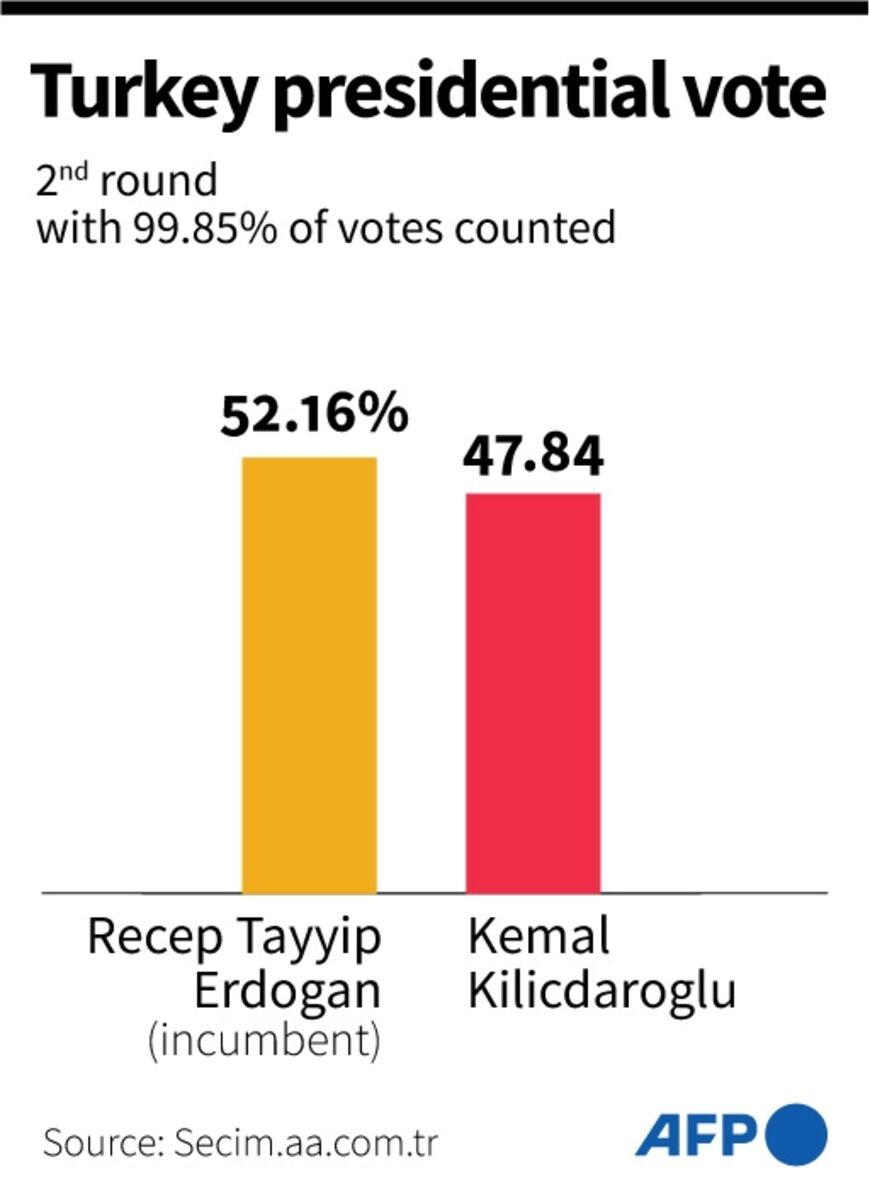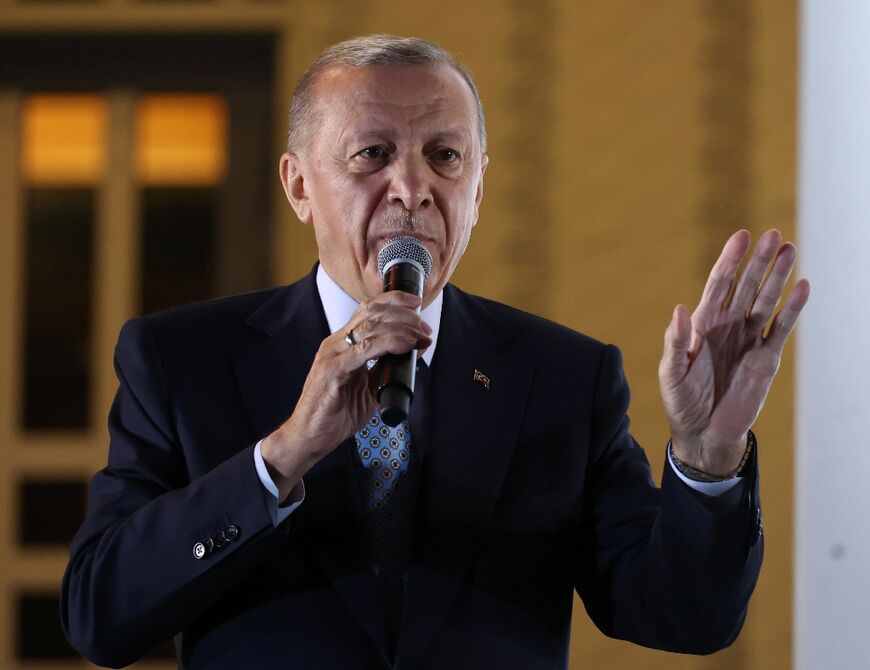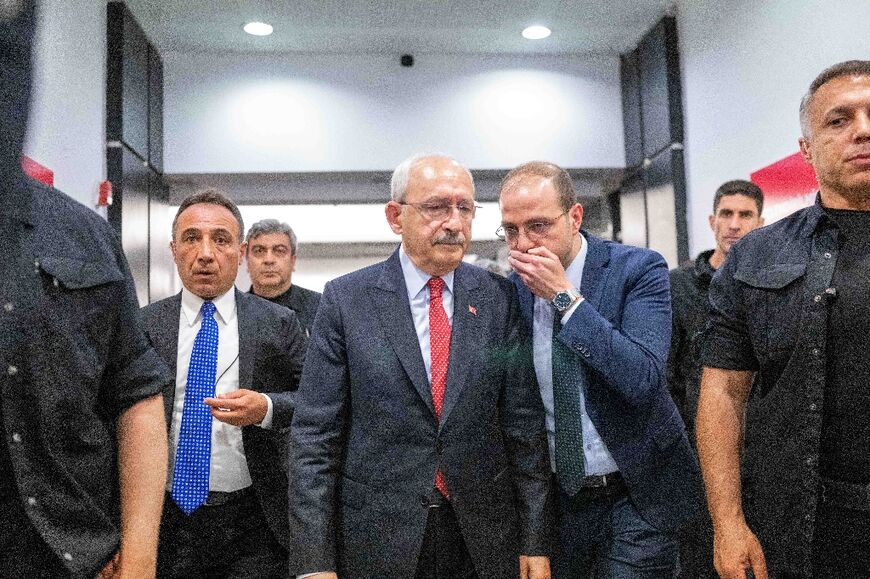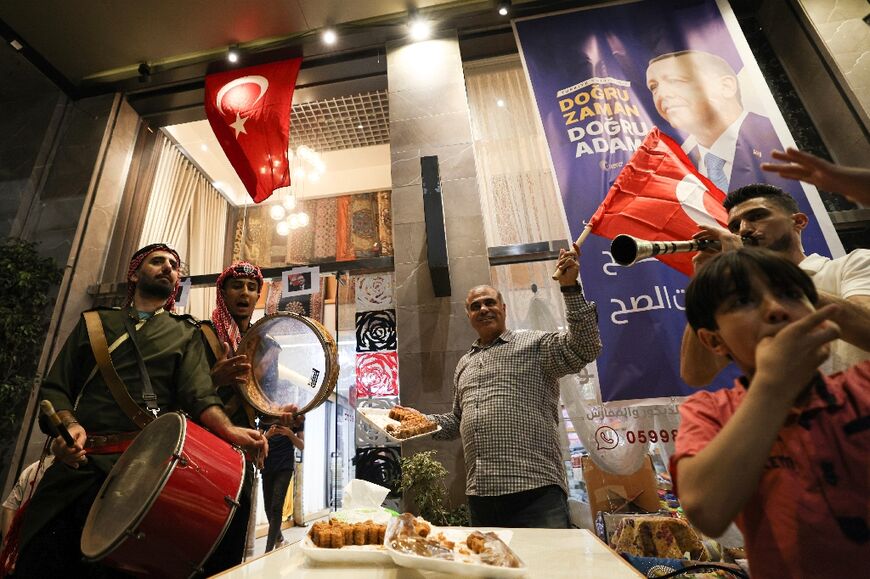Erdogan confronts polarised Turkey after historic win
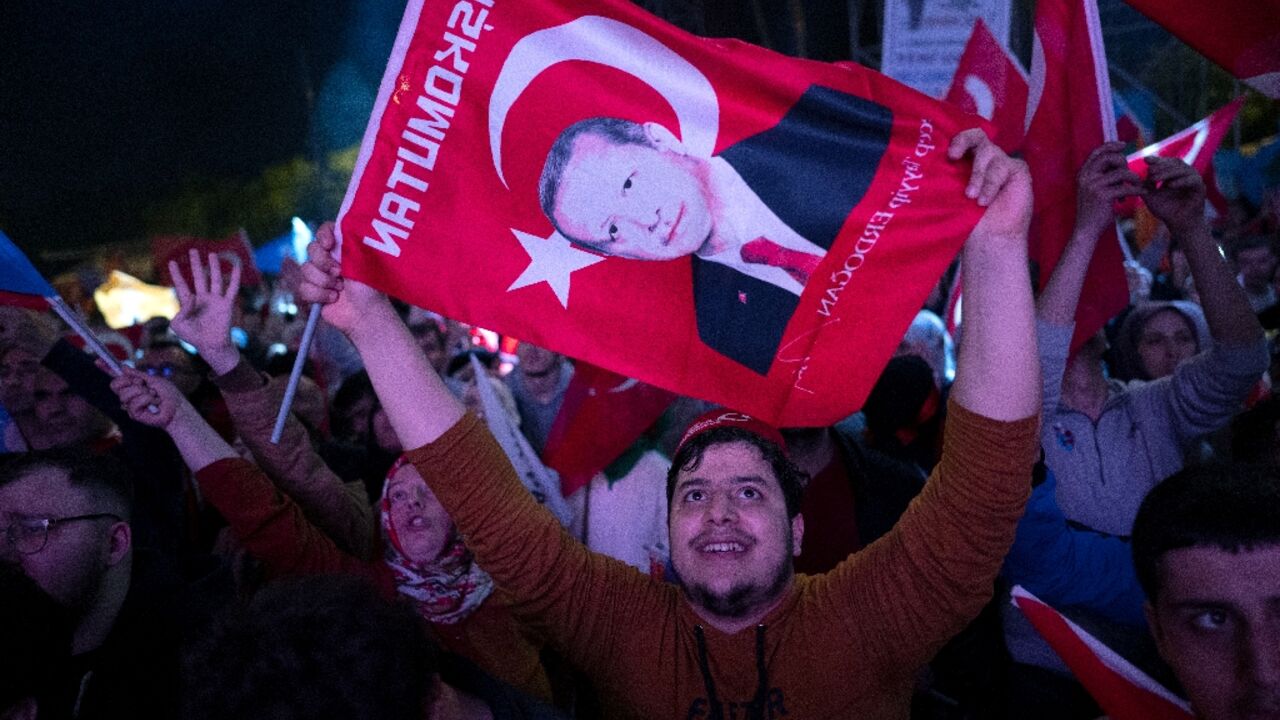
Turkish President Recep Tayyip Erdogan on Monday confronted the tough task of uniting his deeply divided country after winning a historic runoff election to extend his two-decade rule to 2028.
Turkey's longest-serving leader surmounted a powerful opposition coalition, an economic crisis and anger following a devastating February earthquake to beat secular challenger Kemal Kilicdaroglu in Sunday's vote.
But his four-point victory margin was Erdogan's narrowest of any past election, highlighting the country's sharp polarisation that the Islamic-rooted conservative will contend with in his final term.
Erdogan, 69, called on Turks to "come together in unity and solidarity", while Kilicdaroglu vowed to "continue the struggle" against the president and his AKP party, which has dominated Turkish politics since 2002.
"God granted our wishes. Erdogan is a great leader, he has brought Turkey a long way," Burak Durmus, 24, said in Istanbul's conservative stronghold of Uskudar.
Bugra Iyimaya, a 28-year-old academic, said the opposition would "resist and fight until the end" after Erdogan won Turkey's first runoff.
"Our elders taught us to struggle... we will not lose or give up on this country with one election," he told AFP.
International observers led by the Organization for Security and Cooperation in Europe (OSCE) said media bias and restrictions to freedom of expression created "an unlevel playing field" and "an unjustified advantage" for Erdogan.
Some opposition supporters faced intimidation and harassment, the agency said, while both sides used "inflammatory and discriminatory language" by accusing each other of collaborating with "terrorist organisations".
Having harnessed a coalition of nationalist, conservative and religious voters, Erdogan "will double down on his brand of populist policies... political polarisation is here to stay", said Emre Peker of the Eurasia Group consultancy.
- 'It could get ugly' -
Countering the country's worst economic crisis since the 1990s is an urgent priority.
Inflation is running at more than 40 percent, partly exacerbated by Erdogan's unorthodox policy of cutting interest rates to try to cool spiralling prices.
Analysts say Erdogan's lavish campaign spending pledges and unwavering attachment to lower interest rates will further strain banks' currency reserves and the lira, which edged down against the dollar on Monday.
Hopes for "an abandonment of the crazy, unconventional economic model and a return to the favour of international investors are finally dashed", said Bartosz Sawicki, a market analyst at Conotoxia.
"The current set-up is just not sustainable," added Timothy Ash of BlueBay Asset Management, pointing to the tens of billions of dollars the central bank has spent to prop up the lira on currency markets.
If Erdogan refuses to make a U-turn on interest rates and abandon the lira, "it could get ugly", Ash warned.
A colossal reconstruction effort in Turkey's southeast is still at an early stage after February's earthquake that killed more than 50,000 people and destroyed infrastructure and livelihoods.
Official figures estimated the damage at more than $100 billion.
- 'Balancing act' -
NATO partners are anxiously waiting for Ankara to approve Sweden's stalled bid to join the US-led defence alliance.
Erdogan has blocked the application, accusing Stockholm of sheltering Turkish opposition figures with alleged links to outlawed Kurdish militants.
"Another five years of Erdogan means more of the geopolitical balancing act between Russia and the West," said Galip Dalay, an associate fellow at the Chatham House think tank.
"Turkey and the West will engage in transactional cooperation wherever its interests dictate it," not joining Western sanctions on Moscow for the war in Ukraine and seeking economically profitable relationships, Dalay added.
US President Joe Biden and Erdogan are due to talk on Monday, presidential spokesman Ibrahim Kalin told television channel A Haber.
NATO issues and the delivery of US F-16 fighter jets to Turkey are likely to be high on the agenda.
Biden needs Congress to approve their transfer, and Kalin said US senators were using the jets "as political leverage".
If the programme stalls, "it's not the end of the world... We don't allow them to take us as prisoners," Kalin said.
Russian President Vladimir Putin was one of the first leaders to congratulate Erdogan, and the Kremlin said it looked forward to achieving "very ambitious" goals with Turkey.
On Monday, he again congratulated Turkey's leader on his re-election and said it opened up "new avenues" for cooperation between Ankara and Moscow, the Kremlin said.
"The support expressed by the Turkish people for their leader opens new avenues for development of bilateral ties in a number of sectors," Putin said in a call with Erdogan, according to the Kremlin.
German Chancellor Olaf Scholz has also spoken with Erdogan after his re-election and invited him to visit, Berlin said Monday.
Erdogan's inauguration ceremony, the nomination of a new cabinet and the sitting of the new parliament will follow the confirmation of the final election results this week.


